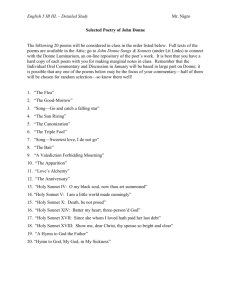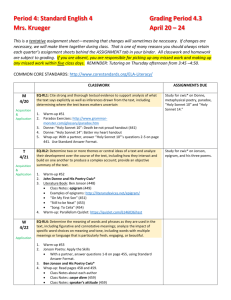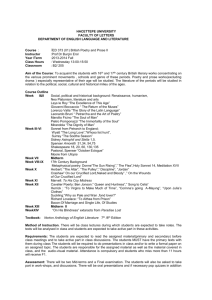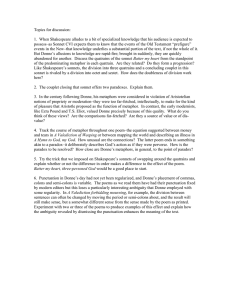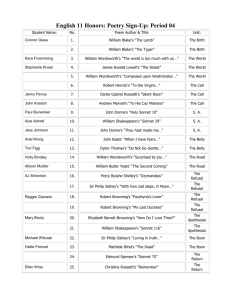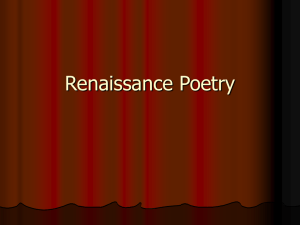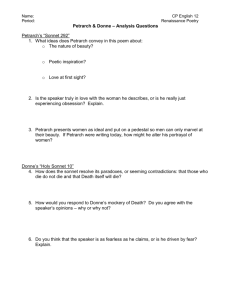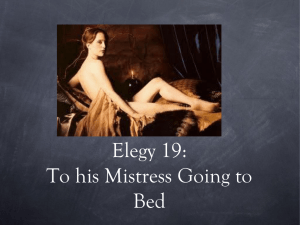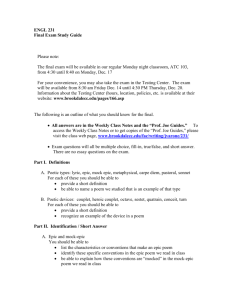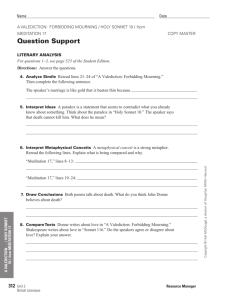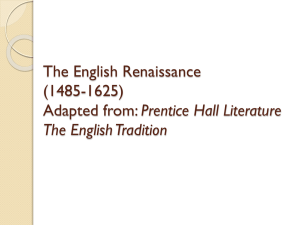Literary Themes in Poetry: Analysis & Examples
advertisement
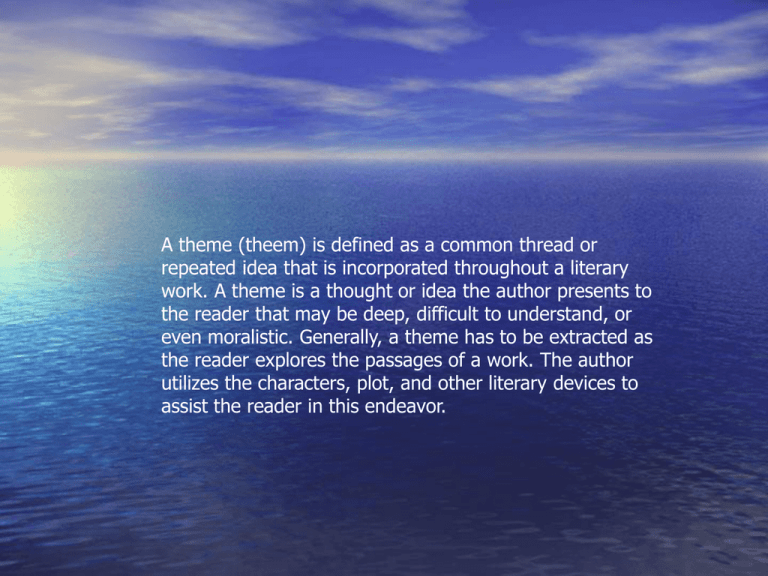
A theme (theem) is defined as a common thread or repeated idea that is incorporated throughout a literary work. A theme is a thought or idea the author presents to the reader that may be deep, difficult to understand, or even moralistic. Generally, a theme has to be extracted as the reader explores the passages of a work. The author utilizes the characters, plot, and other literary devices to assist the reader in this endeavor. “Whoso List to Hunt” by Sir Thomas Wyatt Love is described in terms of a “hunt” showing the thrill of the chase and pursuit of a lover. Sonnet 30 by Sir Edmund Spenser Love is a potent puzzle that we never solve. His love is “the fire” and her rejection is “the ice.” Sonnet 75 by Sir Edmund Spenser A promise to make her name and their love live forever through his verse. “To the Virgin to Make Much of Time” by Robert Herrick Time flies and youth fades. Young women should marry quickly before they lose the chance. “To His Coy Mistress” by Andrew Marvell To avoid being at the mercy of time, he and his lover must outrun time. “Song” by John Donne A woman who is faithful and fair does not exist. “”Valediction: Forbidding Mourning by John Donne Poem of farewell from a husband to his wife. The husband forbids his wife to mourn, but to see his leaving as a journey he must take. “Death Be Not Proud” by John Donne Death is merely an episode in the progress of the soul, the moment of its delivery from the confines of the body to eternal life. “On My First Son” by Ben Jonson Farewell to his dead son of 7 years. He regrets having forgotten that his child was merely loaned to him by God, yet he was his “best piece of poetry.” “Song to Celia” by Ben Jonson He is toasting Celia and telling her how much he loves her. “Why So Pale and Wan Fond Lover? (Song)” by Sir John Suckling The speaker counsels a man who is pining for the love of a woman who is indifferent to him. “To Lucasta” by Richard Lovelace A man declares his love of his country and explains to his beloved why he must leave her and go to war. “To Althea, from Prison” by Richard Lovelace Stone walls do not a prison make. Although confined in prison, he is spiritually and imaginatively free. “Sonnet 17” by Pablo Neruda Romantic love through a speaker who does not love as if the beloved were an object. Instead, he loves in a way that is more deep, mysterious, and profound “Sonnet 79” by Pablo Neruda He asks his love to “tie her heart to his.” A love is shown that answers questions and unlocks doors.
